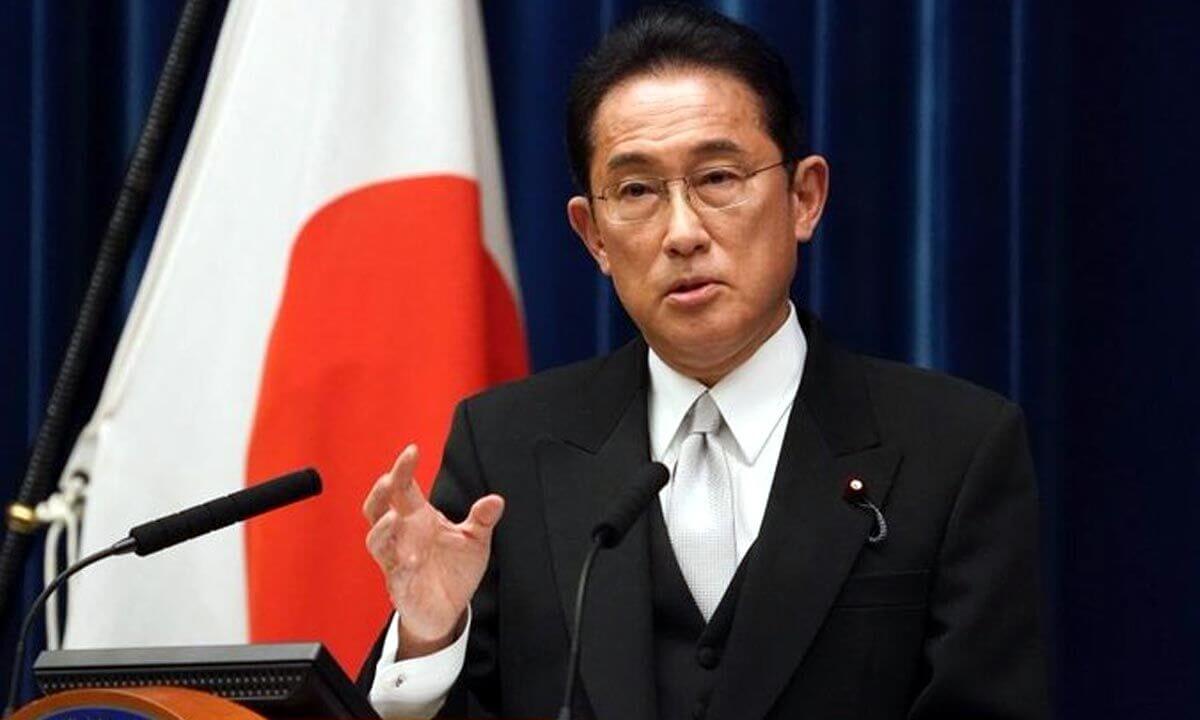During his speech at the 77th National Memorial Ceremony for the War Dead on Monday, Japanese Prime Minister (PM) Fumio Kishida pledged to never wage war again, despite his government having significantly increased the country’s defence budget.
In an annual ceremony that was attended by families of war veterans of World War II (WWII), the PM offered his “heartfelt prayers” for the “repose” of war veterans who “fell victim to the violent turmoil of war” and hoped “for the happiness of the members of their bereaved families.” “We will not forget, even for a moment, that the peace and prosperity we enjoy today was built atop the precious lives and the history of suffering of the war dead. I express my deepest respect and gratitude once more,” Kishida said.
The PM added that since the end of WWII, the Japanese people have “consistently walked the path of a peace-loving nation” and have “taken the lessons of history deeply into [their] hearts”. To this end, he added that the country has “made all possible efforts for world peace and prosperity.” “We must never again repeat the devastation of war. We will continue to remain committed to this resolute pledge,” he stated.
He further noted that “conflicts have [yet] not yet ceased” in the world and to this end, assured that his government “is determined to join forces with the international community” and “do its utmost to resolve the various challenges facing the world.” “We shall carve out the future of our nation for the sake of the generation alive now and the generations of tomorrow,” he concluded.
Kishida’s comments come against the backdrop of his administration continuing to expand the defence budget. Last November, Kishida’s government added a supplementary budget of a whopping $6.75 billion to its already record annual military spending in a bid to bolster its air and maritime defences against the rising threat posed by China, Russia, and North Korea.
“As the security environment around Japan worsens at unprecedented speed, our urgent task is to accelerate the implementation of various projects,” the Defence Ministry said in its spending proposal. Combined with the $46.7 billion initial budget for the fiscal year 2021, which started in April, the total defence budget for the country’s last fiscal year reached more than $52 billion, the highest total in the country’s history.
On the anniversary of Japan's World War Two surrender, Japanese Prime Minister Fumio Kishida pledged his country would never again wage war https://t.co/q1CdKuT4TF pic.twitter.com/s5oivpweQ5
— Reuters (@Reuters) August 15, 2022
In fact, Japanese defence spending hit a record high for the seventh consecutive year last year and has surpassed the country’s decades-long cap of spending only up to 1% of its gross domestic product (GDP) on military expenditure. During the election pledges taken by Kishida’s ruling party last October, the party set a goal of almost doubling the nation’s defence spending to 2% of its GDP.
To this end, a white paper that Tokyo’s defence ministry released in late July said that the country’s deterrence must also be complemented by improving the defensive capabilities of the country’s Self Defence Forces (SDF). It noted Tokyo’s increased defence expenditure, which it says will be used to expand its capabilities in the space, cyber, and electromagnetic domains. The document notes that Japan’s FY2022 annual budget increases defence spending by 1.1%, or $404 million, to around $37.8 billion.
Defence Minister (DM) Nobuo Kishi further explained Japan’s evolving defence strategy by calling the Indo-Pacific “the centre” of evolving global strategic competition and denounced China’s ‘unilateral’ attempts to change the status quo in the East and South China Seas through “coercion.” He thus noted that increased cooperation between “aggressor nations” Russia and China, as seen through joint navigations and flights, is a clear and prescient threat.
Looking to the future, Kishi added that Tokyo is “currently working on drawing up a new National Security Strategy, etc. under the order of Prime Minister Kishida.” He also said that the government will “boldly” establish new strategies and think “flexibly beyond existing paradigms in order to preemptively deter changes to the status quo by force.”
Likewise, Kishida himself has “committed to realism diplomacy for a new era,” which he said will involve “expanding Japan’s security role” and “fundamentally reinforcing” its defence capabilities. He has also indicated his willingness to strengthen the country’s pre-emptive capabilities.

